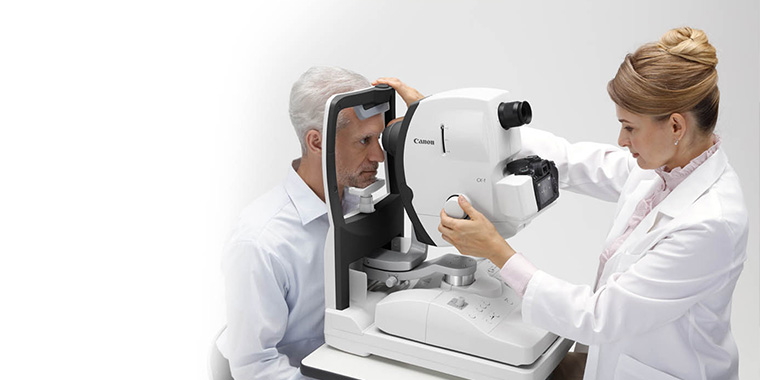Leading Cardiologist Andalusia: Your Partner in Heart Health
Leading Cardiologist Andalusia: Your Partner in Heart Health
Blog Article
Is Refractive Surgical Procedure Right for You? Aspects to Think About for Better Eyecare
In the realm of eye care, the decision to undergo refractive surgery is a significant one that demands thoughtful consideration. From the intricacies of one's eye health and wellness to the ins and outs of daily habits and individual assumptions, each element holds relevance in the wider landscape of refractive surgical treatment candidacy.
Eye Health Evaluation
When thinking about refractive surgical procedure, a detailed eye health and wellness assessment is essential to assess the viability of the procedure for every person. eye center andalusia. This assessment involves a collection of exams and tests carried out by an eye treatment professional to identify the general health and wellness of the eyes, the presence of any hidden problems, and the security of the refractive error
Throughout the assessment, different factors are thought about, such as the person's medical history, current eye prescription, corneal thickness, pupil dimension, and tear movie high quality. These analyses assist to recognize any kind of contraindications to refractive surgical treatment, such as corneal irregularities, cataracts, or unattended eye infections. Additionally, the examination aids to manage client expectations concerning the potential results of the surgical treatment based upon their one-of-a-kind eye attributes.
Ultimately, the eye health assessment is crucial in making sure the safety and security and efficiency of refractive surgical procedure, as it offers valuable insights into the person's eye health and wellness status and aids identify the most appropriate treatment options for achieving ideal visual outcomes. (andalusia pediatrics)
Lifestyle Assessment
A detailed lifestyle evaluation is integral in establishing the suitability of refractive surgical procedure for a person's visual improvement requirements. Way of living aspects such as occupation, pastimes, and day-to-day activities play a critical duty in the decision-making process relating to refractive surgery.
In addition, way of life behaviors such as sporting activities engagement, exterior tasks, or also skin care regimens can influence the healing process and general success of refractive surgical procedure. By conducting a thorough way of living assessment, eye care experts can tailor their recommendations and therapy strategies to satisfy the distinct needs of each patient, ultimately leading to boosted aesthetic results and complete satisfaction.
Expectation Placement

Patients require to understand that while many individuals achieve 20/20 vision or much better adhering to refractive surgical treatment, some might still need glasses for particular activities like analysis or driving at evening. Handling these assumptions helps stop dissatisfaction and discontentment post-surgery, leading to an extra positive overall experience for the person.
Danger Evaluation

Aspects that might enhance the danger of problems consist of age, specific medical problems like autoimmune conditions, unstable vision prescription, slim corneas, and impractical patient expectations. Furthermore, picking a knowledgeable and skilled specialist, adhering to pre and post-operative treatment directions diligently, and revealing any type of pertinent medical history can assist alleviate risks.
To reduce the probability of complications, ophthalmologists carry out thorough pre-operative assessments to determine any contraindications to surgical procedure. They also talk about the prospective dangers and advantages with people throughout the consultation process. By participating in open communication and shared decision-making, both the client and the ophthalmologist can function with each other to figure out if refractive surgical procedure is the appropriate option based upon private danger profiles and preferred results.
Assessment Significance
Thinking about the critical duty of educated decision-making in analyzing threats and prospective issues in refractive surgical treatment, the assessment process holds significant importance in directing patients in the direction of optimum results. During the consultation, the eye doctor reviews the individual's eye health and wellness, refractive errors, and overall viability for surgical treatment. This initial assessment is critical in figuring out the most suitable treatment for each and every individual, considering variables such as corneal density, pupil dimension, and existing eye conditions.
Moreover, the consultation functions as an opportunity for clients to review their assumptions, worries, and any inquiries they might have relating to the surgical treatment. Clear interaction between the patient and the doctor is necessary to guarantee realistic assumptions and a thorough understanding of the possible dangers and advantages included.
In addition, the assessment permits the surgeon to clarify the different surgical alternatives available, their particular end results, and the post-operative care called for. This comprehensive conversation empowers individuals to make well-informed decisions regarding their eye treatment, leading to much better contentment and outcomes post-surgery.
Conclusion
In verdict, individuals considering refractive surgical treatment needs to undergo an extensive eye health and wellness analysis, assess their way of living routines, align their expectations with potential results, examine the connected dangers, and prioritize consultations with eye care professionals. These elements play a critical role in determining the suitability of refractive surgery for every individual, guaranteeing ideal results and fulfillment with the treatment.
Individuals taking into consideration refractive surgical procedure often have high assumptions pertaining to the end results, anticipating best vision without the requirement for glasses or get in touch with lenses. While refractive surgical treatment can significantly enhance discover this vision and decrease dependency on aesthetic help, it is vital for individuals to comprehend that results might vary based on individual variables such as the level of refractive mistake, corneal thickness, and general eye health.
By involving in open communication and shared decision-making, both the individual and the ophthalmologist can function together to determine if refractive surgical procedure is the ideal choice based on individual risk accounts and desired end results.
Thinking about the vital role of educated decision-making in evaluating risks and prospective problems in refractive surgical procedure, the examination process holds substantial significance in leading individuals towards ideal outcomes. Throughout the assessment, the ophthalmologist reviews the client's eye wellness, refractive errors, and overall suitability for surgery.
Report this page